Life
Sign up for our newsletter
We summarize the week's scientific breakthroughs every Thursday.
-
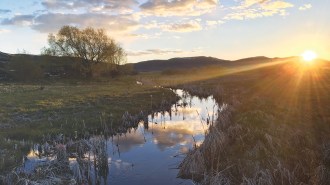 Ecosystems
EcosystemsAs ‘phantom rivers’ roar, birds and bats change their hunting habits
A massive experiment in the Idaho wilderness shows it’s not just human-made noises that impact ecosystems. Natural noises can too.
By Nikk Ogasa -
 Paleontology
PaleontologyAn ancient creature thought to be a teeny dinosaur turns out to be a lizard
CT scans of hummingbird-sized specimens trapped in amber reveal that the 99-million-year-old fossils have a number of lizardlike features.
-
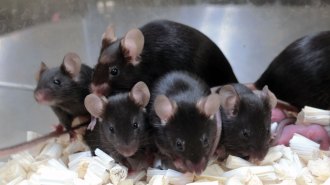 Animals
AnimalsMouse sperm thrived despite six years of exposure to space radiation
A space station experiment suggests future deep-space explorers don’t need to worry about passing the effects of space radiation on to their children.
-
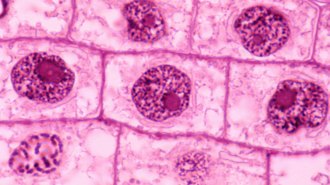 Life
LifeCells cram DNA into the nucleus in two distinct ways
Heat maps of cell nuclei show that some cells pack chromosomes that look like crumpled balls of paper, while others are neatly stacked.
-
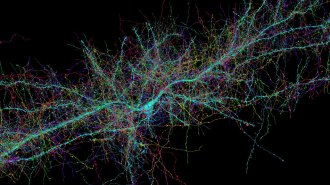 Neuroscience
NeuroscienceA deep look at a speck of human brain reveals never-before-seen quirks
Three-dimensional views of 50,000 cells from a woman’s brain yield one of the most detailed maps yet.
-
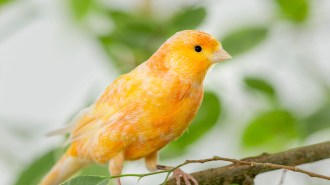 Animals
AnimalsThe mere sight of illness may kick-start a canary’s immune system
Healthy canaries ramp up their immune systems when exposed to visibly sick birds, without actually being infected themselves.
-
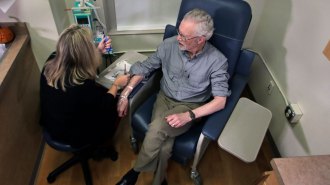 Health & Medicine
Health & MedicineFDA approved a new Alzheimer’s drug despite controversy over whether it works
A new Alzheimer's treatment slows progression of the disease, the drug’s developers say. But some researchers question its effectiveness.
-
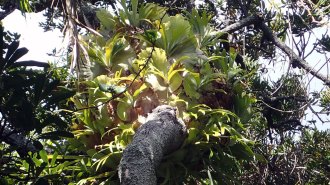 Plants
PlantsThese ferns may be the first plants known to share work like ants
Staghorn ferns grow in massive colonies where individual plants contribute different jobs. This may make them “eusocial,” like ants or termites.
By Jake Buehler -
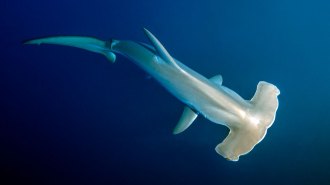 Paleontology
PaleontologySomething mysteriously wiped out about 90 percent of sharks 19 million years ago
Deep sediments beneath the Pacific Ocean revealed a mystery: a massive shark die-off with no obvious cause.
-
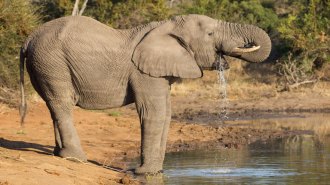 Animals
AnimalsNewly recognized tricks help elephants suck up huge amounts of water
New ultrasound imaging reveals what goes on inside a pachyderm’s trunk while feeding. It can snort water at the rate of 24 shower heads.
By Sid Perkins -
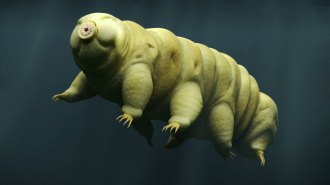 Life
LifeEven hard-to-kill tardigrades can’t always survive being shot out of a gun
A recent experiment put tardigrades’ indestructibility to the test by firing the critters at speeds up to 1,000 meters per second.
-
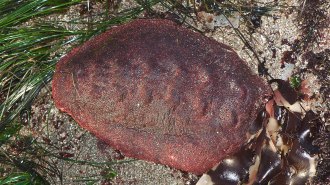 Animals
AnimalsThe teeth of ‘wandering meatloaf’ contain a rare mineral found only in rocks
The hard, magnetic teeth of the world’s largest chiton contain nanoparticles of santabarbaraite, a mineral never seen before in biology.